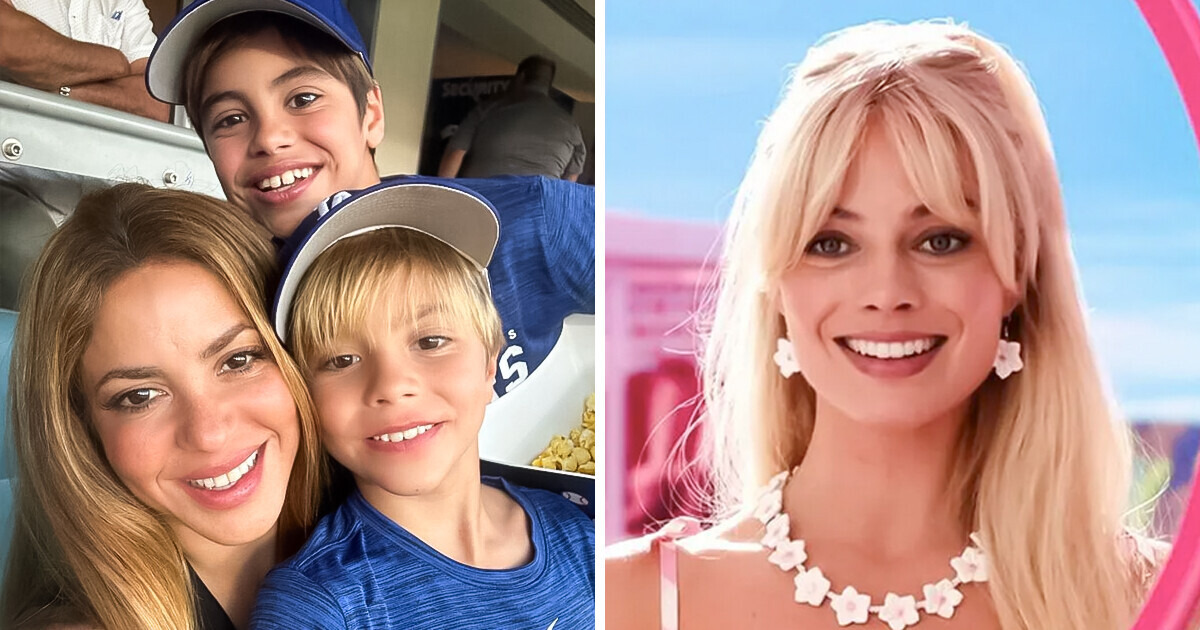Shakira, the internationally acclaimed singer and cultural icon, has never been one to hold back her opinions, and in a recent interview with Allure magazine, she shared her thoughts on one of 2023’s biggest cinematic releases—the Barbie movie, directed by Greta Gerwig. While the film was a major success, grossing $1.4 billion worldwide and receiving eight Oscar nominations, including Best Picture, it has also sparked conversations and controversies about its portrayal of gender dynamics. Shakira’s insights, particularly in light of her role as a mother to two sons, add a nuanced layer to the ongoing debate.

A Film That Divided Opinions: Shakira’s Sons and Their Reaction
For Shakira, the discussions around the Barbie movie became personal when she observed her sons’ reactions to it. Despite the film’s widespread popularity and acclaim, her sons were not impressed. In fact, they found aspects of the film to be off-putting, describing it as “emasculating.” This feedback from her sons presented Shakira with a challenge, as she navigates raising boys in a world where conversations around gender roles and expectations are evolving rapidly.
As a mother, Shakira is keenly aware of the importance of instilling values of strength and resilience in her sons while also teaching them to respect and appreciate the strength of women. The film, however, seemed to strike a discordant note for her boys, leading to an interesting family discussion about the portrayal of masculinity and femininity in modern media.

Shakira’s Thoughtful Take: Empowering Without Diminishing
In the interview, Shakira was candid about her thoughts on the Barbie film. “My sons absolutely hated it,” she said. “They felt that it was emasculating.” While acknowledging their perspective, she also offered a more balanced view, agreeing to a certain extent but not entirely. She emphasized that her ideal vision for gender representation in media is one where empowerment doesn’t come at the cost of another.
Shakira’s philosophy centers on a belief in equality and partnership. She desires a world where men and women can coexist as equals, each embracing their own strengths while supporting one another. Her comments reflect a broader wish for pop culture to inspire young people—both boys and girls—to see themselves as capable and strong without diminishing the value of the opposite gender. “Women can be strong, powerful, and independent,” she noted, “but that doesn’t mean men have to be weak. We need to find ways to uplift both.”

Advocating for Balance: The Idea of Sharing the Load
A key point Shakira addressed was the concept of shared responsibilities between men and women. When asked about the notion that just because a woman can do everything doesn’t mean she should, Shakira responded thoughtfully, saying, “Why not share the load with people who deserve to carry it, who have a duty to carry it as well?” Her response emphasized the importance of partnership, not just in personal relationships but also in how society should view gender roles.
Shakira’s comments advocate for a cooperative dynamic where both men and women contribute to society in ways that play to their strengths, without creating unnecessary divisions. Her stance challenges the idea that empowerment is a zero-sum game. Instead, she envisions a culture where strength is not competitive but complementary, allowing men and women to thrive together rather than at the expense of each other.
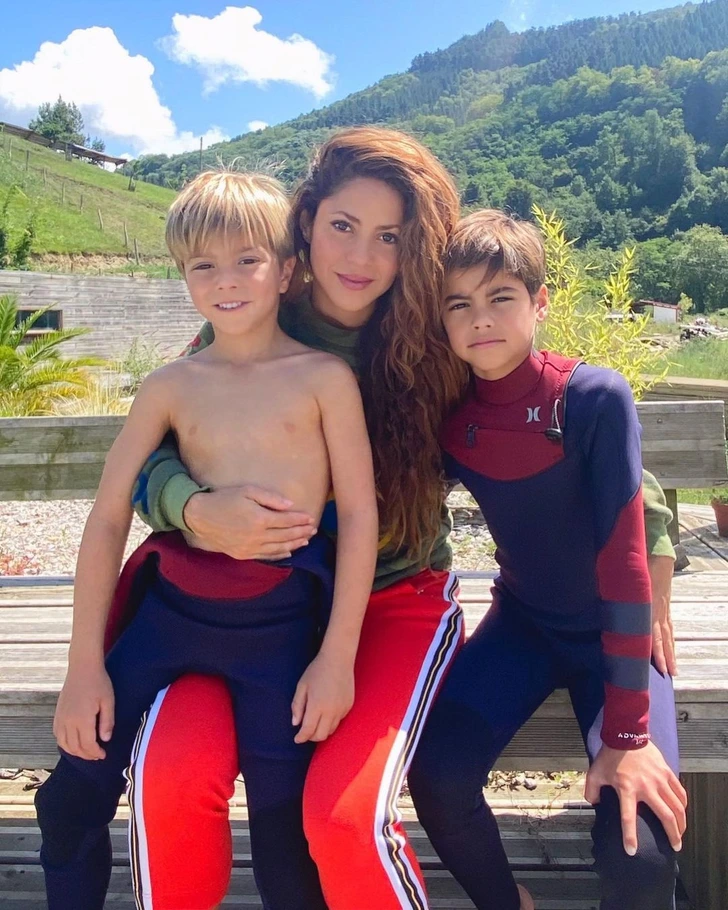
The Broader Conversation: Critics of the Barbie Film
Shakira’s perspective aligns with a broader discourse that emerged around the Barbie movie. While many celebrated the film’s bold approach to addressing stereotypes and promoting female empowerment, others criticized it for what they perceived as an overly aggressive stance against traditional masculinity. Some conservative critics labeled the film as “anti-man” or “feminist propaganda,” sparking heated debates online and across various media platforms.
Shakira’s reflections on these critiques were measured, acknowledging that while some of these concerns might have merit, it is also crucial to recognize the intention behind the film. Her thoughts suggest that a more productive conversation could be had by focusing on the positives of gender equality, rather than drawing battle lines between men and women.

Greta Gerwig’s Vision: Inclusivity and Reflection
Director Greta Gerwig had a different interpretation of her film’s message, expressing surprise at the backlash. In her vision, Barbie was meant to be an invitation for all—men, women, and everyone in between—to participate in a dialogue about gender and self-expression. Gerwig wanted the film to challenge outdated norms, encouraging audiences to let go of societal expectations that no longer serve them. “The goal was not to pit men and women against each other,” Gerwig explained, “but to inspire people to reflect on how we can all find joy, freedom, and authenticity, regardless of gender.”

Gerwig’s hope was for Barbie to be a celebration of inclusivity, encouraging viewers to think critically about how gender roles are portrayed and to envision a future where everyone is free to be themselves without fear of judgment. This vision, while ambitious, has had mixed interpretations, as seen in the responses from various audience segments, including Shakira’s own family.
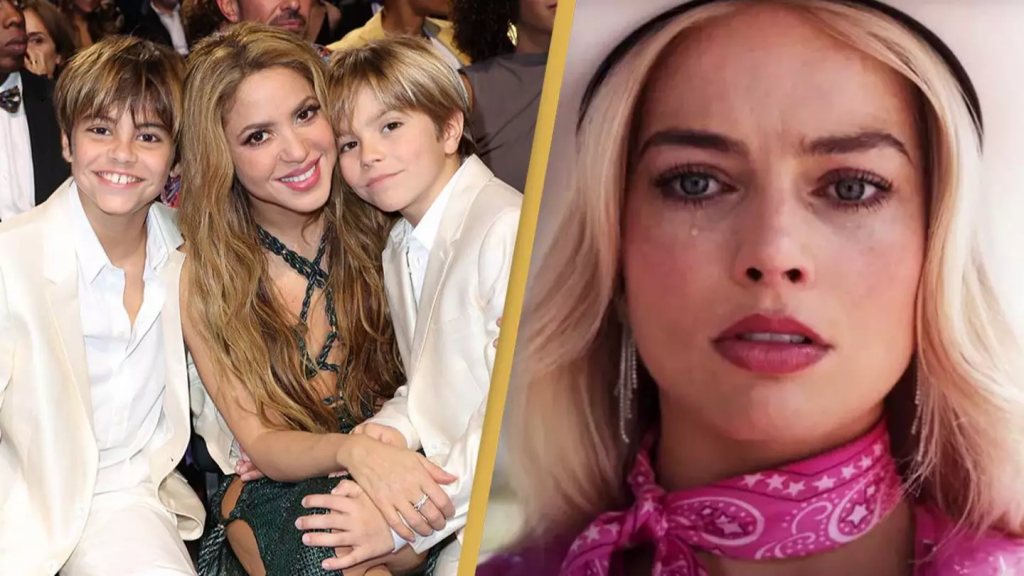
Shakira’s Perspective on Gender Dynamics: Seeking Complementarity
The dialogue around the Barbie film ties into larger, ongoing conversations about how masculinity and femininity are perceived and represented in popular culture. Shakira’s perspective adds an important voice to this discussion, particularly because of her experiences as a global figure who navigates these dynamics on and off the stage. She emphasizes that true empowerment comes from a place of mutual respect and understanding, not from diminishing one side to elevate the other.

As she succinctly puts it, “We complement each other, and that complement should not be lost.” For Shakira, this idea of complementarity is essential. It reflects her belief that men and women, while different in many ways, each bring something valuable to the table, and that these differences should be celebrated rather than erased or belittled. Her viewpoint is a call to action for society to foster environments where everyone—regardless of gender—feels empowered to succeed.
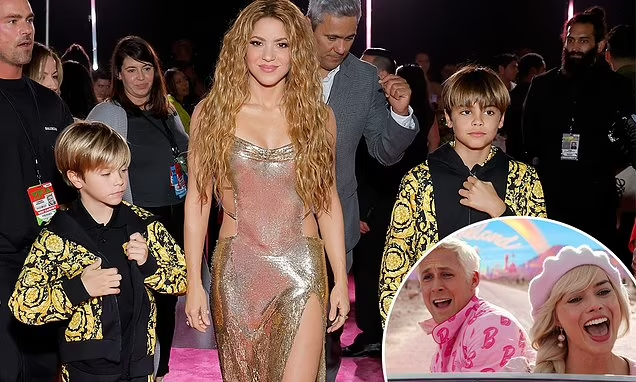
The Cultural Impact of Barbie: More Than Just a Movie
Despite the controversies, there is no denying that the Barbie movie has had a significant cultural impact. It sparked discussions around gender norms, representation, and the evolving expectations placed on both men and women. In many ways, the film’s ability to generate such widespread debate is a testament to its relevance. For some, it was an empowering portrayal of female strength; for others, it raised concerns about how masculinity is depicted.
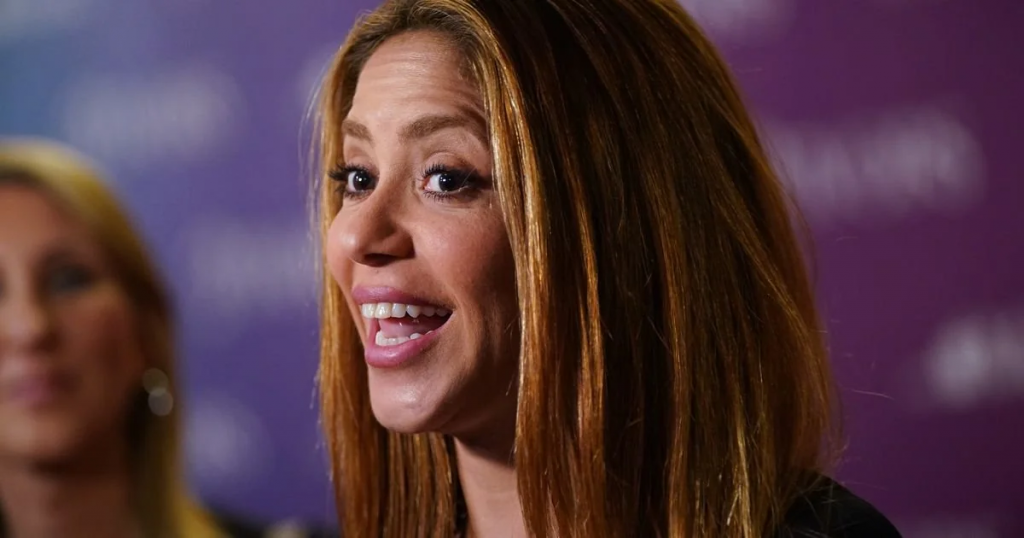
Shakira’s reflections remind us that it is possible to appreciate a film’s message while also critiquing its execution. She offers a perspective that encourages balance, advocating for a world where empowerment is not achieved through comparison but through collaboration. As she guides her sons through their formative years, she hopes to instill in them a sense of confidence and respect—qualities she believes should not be mutually exclusive but rather interwoven.
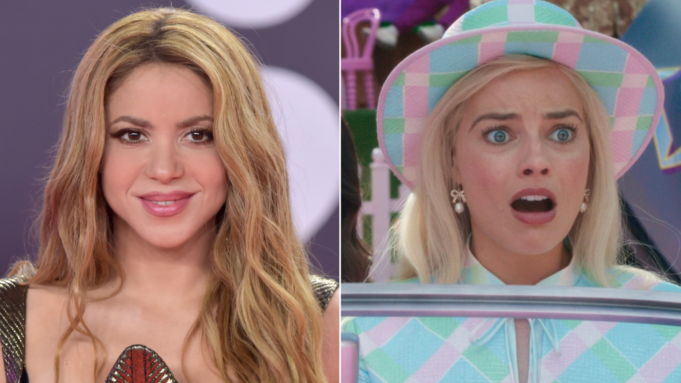
Moving Forward: The Importance of Dialogue and Understanding
Shakira’s interview serves as a reminder of the value of dialogue. Rather than dismissing her sons’ opinions, she engages with them, using the Barbie film as a springboard to discuss broader issues around gender, identity, and respect. It is this kind of thoughtful engagement that fosters understanding and paves the way for a more inclusive future.
While Greta Gerwig’s intentions were to create a space where everyone could feel welcome and understood, the varied reactions to the film indicate that there is still much work to be done. Shakira’s call for balance highlights the importance of nuanced discussions that don’t simply pit one side against another but seek to build bridges of understanding.

Through her words, Shakira echoes a sentiment that resonates far beyond the silver screen: the idea that real progress is made when men and women can uplift each other, sharing the load, and respecting each other’s strengths. The Barbie movie may have sparked controversy, but it also opened up an opportunity for meaningful conversation—one that Shakira, through her influence, is helping to continue.
